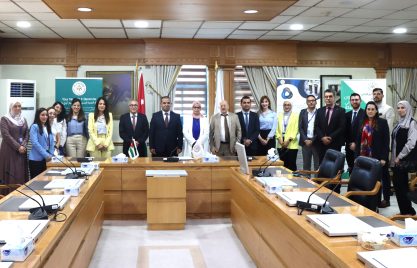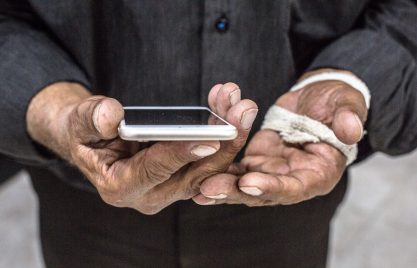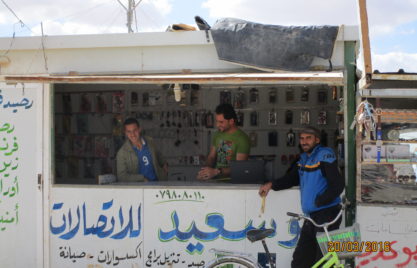Surprising facts and figures were revealed at first roundtable for Financial Inclusion (FI) for the vulnerable during visit of Tanja Gönner, chair of the GIZ management board.
“I got my first savings account, when I was seven”, said Tanja Gönner, and learned that for example Maha Bahou, Head of Domestic Payments and Banking Operations at the Central Bank of Jordan (CBJ), got her first bank account when she got her first job. Obstacles and hesitation to use formal financial services by everyone are aimed to be overcome by the CBJ and its national allies. To discuss how to achieve such an ambitious goal, the senior management of both Jordanian and international institutions gathered in the CBJ for the first roundtable discussion on Financial Inclusion for vulnerable groups in Jordan. The event, hosted by CBJ, covered Financial Inclusion as a whole and dug into Microfinance and Remittances, especially their digital potential in Jordan and MENA, as subtopics.
The more people that are using financial products and are enabled to use them responsively, the more people, especially low income groups, can take advantage of other financial services to stabilize their living and expenses. Saleem Nammari, Executive Director of the microfinance network ‘Tanmeyah’, was happy to highlight the increasing role of the microfinance market for vulnerable populations: Its gross loan portfolio increased by 22% and the number of active borrowers by 9% in the first quarter of 2016. Financial Inclusion is also increasingly on the screen of international donors and aid agencies: Ms. Anita Ryczan from the European Delegation in Amman stated that financial inclusion today has become a high priority for the European Commission when it comes to sustainable and inclusive growth.
Amongst the vulnerable groups, the refugees hosted in Jordan need to be first of all granted with access to financial means and services. Here, Jordan has a leading role worldwide with over USD 50m being issued for refugees of all nationalities within the months of January through August 2016. Financial inclusion is receiving more attention by UNHCR in this context since financial services are a strong complement in emergency situations that can plant seeds for long term stability. The circulation of the money is facilitated via an Iris-detection system at ATMs which was presented by UNHCR’s Senior Field Coordinator, Mr. Volker Schimmel. This system scans refugees’ eyes at an ATM, cross-checks them with the UNHCR database and then grants access to money, if eligible. In this regard, Ms. Gönner advocated for the attention to data protection as well as the chances for the banking sector to provide innovation by linking with mobile payments, remittances and more. “Especially in the field of remittances there are possibilities to lower costs and, at the same time, to extend security with digital payments”, outlined Rainer Schliwa, interim head of the German Cooperation’s GIZ ‘Digi#ances’ Project.At this point, Saleem Nammari explained that MFIs are interested in playing a stronger role in the future. All the panellists concurred on the need for strong MFIs and strong supervision, but nobody wants to lose sight of the main target – the vulnerable. “After all”, concluded Maha Bahou, “we want to serve the people and not the institutions.”

From left to right: Anita Ryczan, EU Delegation; Tanja Gönner, GIZ Germany; Saleem Nammari, Tanmeyah; Thomas Rahn, GIZ JO; Maha Bahou, CBJ; Volker Schimmel, UNHCR; Rainer Schliwa, GIZ JO.
By Thomas Oelker



